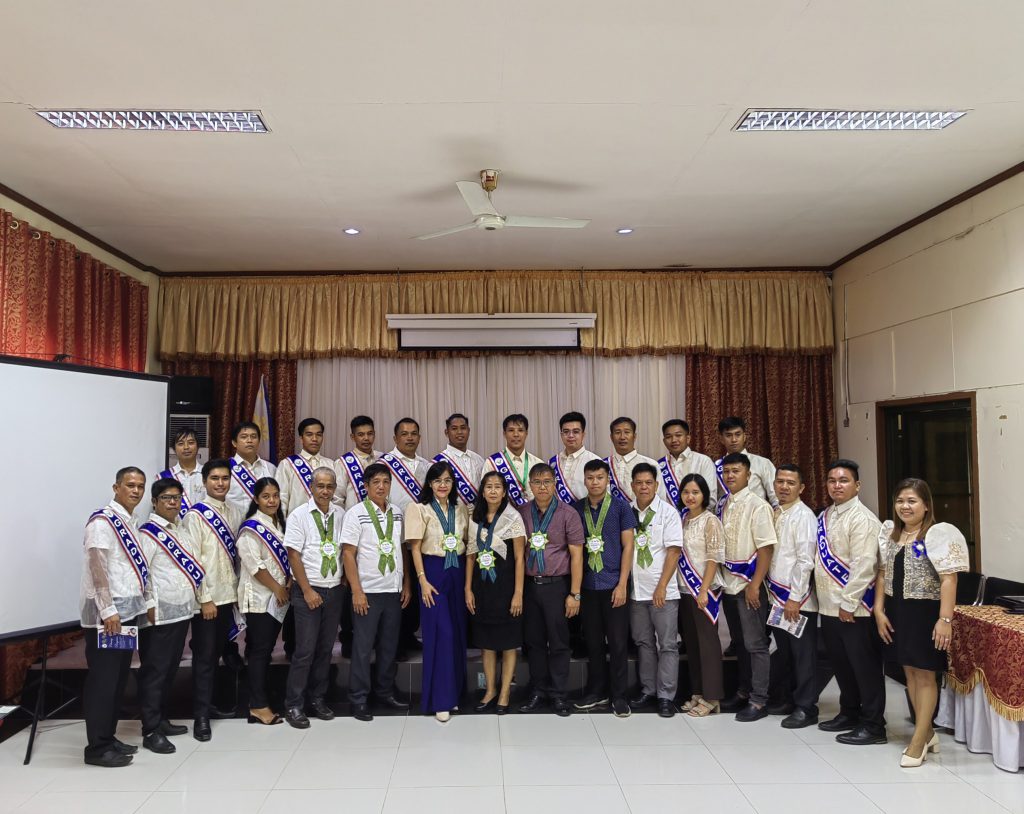In celebration of skill and knowledge, the graduation ceremony for the “Basic Training Course on Artificial Insemination and Pregnancy Diagnosis in Large Ruminants” took place on September 29, 2023, at the Department of Agriculture-Agricultural Training Institute-Regional Training Center 02 (DA-ATI-RTC02), Cabagan, Isabela. This milestone marks the culmination of a collaborative effort between the DA-ATI-RTC02, the DA-Regional Field Office 02 (DA-RFO2), and the DA-Philippine Carabao Center (DA-PCC). The training course, which ran from September 4 to September 29, 2023, saw 20 agricultural extension workers from various municipalities in Cagayan, Isabela, Quirino, and Batanes Provinces successfully completing the program.
The objective of the training was clear: to equip these dedicated agricultural extension workers with essential skills and knowledge in artificial insemination, enabling them to provide vital extension services in large ruminants within their respective regions. This effort is seen as a significant complement to existing programs of the DA-PCC, such as the DA-National Livestock Program (DA-NLP) and the Carabao Development Program. These initiatives collectively aim to enhance breed quality and boost the population of carabaos and cattle, ultimately contributing to the food security of the Philippines.
Gracing the ceremony with their words of encouragement were prominent figures in the agricultural sector, including Dr. Roberto C. Busania, Regional Technical Director for Operations of the DA-RFO2; Claris M. Alaska, DPA, Assistant Center Director of the DA-ATI-RTC02; and Dr. Rovina R. Piñera, OIC Center Director of the DA-PCC at Cagayan State University.
“The government spent a lot of money on this training; do not let the learnings and talents that you have acquired from this training go to waste,” Dr. Busania said.
Moreover, Dr. Busania announced that the DA is committed to providing A.I. equipment to deserving municipalities to enhance the nutrition and production of carabaos and cattle in Region 2. He also challenged the trainees to contribute to the food sufficiency of the country through the provision of A.I. services.
On the other hand, Alaska uplifted the morale of the trainees by emphasizing their role in knowledge and technology transfer.
“Stretch out your services to the agricultural industry. Ituring niyo ito bilang bagong simula ng pagpapalaganap ng A.I. sa inyong mga nasasakupan. Kayo ang inaasahan ng DA-PCC na magdadala ng mga makabagong pamamaraan at teknolohiya sa mga minamahal nating magsasaka,” she said.
Meanwhile, Dr. Rovina R. Piñera commended the successful collaboration of DA-RFO2, DA-ATI-RTC02, and DA-PCC.
“Alone we can do so little, but together we can do so much. Coming together is a beginning, keeping together is progress, and working together is a success,” said Dr. Piñera.
The participants themselves shared their gratitude and enthusiasm for the training. John Dave D. Salvador from Basco, Batanes, highlighted how this training was long-awaited in his province and expressed his commitment to bringing these valuable skills back to his community.
Gabby M. Zamora from Diffun, Quirino, shared his excitement about using his newfound knowledge to benefit local farmers and their livestock.
“Nadagdagan pa ang aking kaalaman sa pag-aalaga at pagpaparami ng mga alagang kalabaw. Sabik na akong maibahagi ang aking mga natutunan sa mga magsasaka sa aming bayan upang malaman din nila ang mga bagong teknolohiya sa pagpaparami ng kanilang mga alaga,” Zamora said.
Ian Paul V. Septimo from Gonzaga, Cagayan, was overwhelmed by the quality of training provided by DA-ATI and expressed gratitude for the equipment received to support their continued efforts in artificial insemination.
“Nagpapasalamat ako sa DA-ATI, DA-RFO2, at DA-PCC sa pamamahagi ng mga equipment upang masigurong hindi masasayang ang aming natutunan sa training na ito at upang maipagpatuloy namin ang A.I. sa aming mga lugar,” Septimo added.
This graduation ceremony represents a significant step forward in enhancing the livestock industry in Region 2 and demonstrates the potential for collaborative efforts to bring positive change to agriculture and food security in the Philippines.

